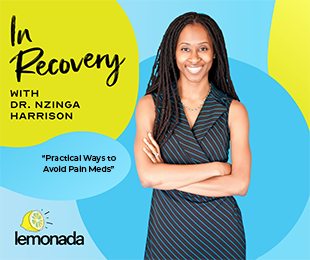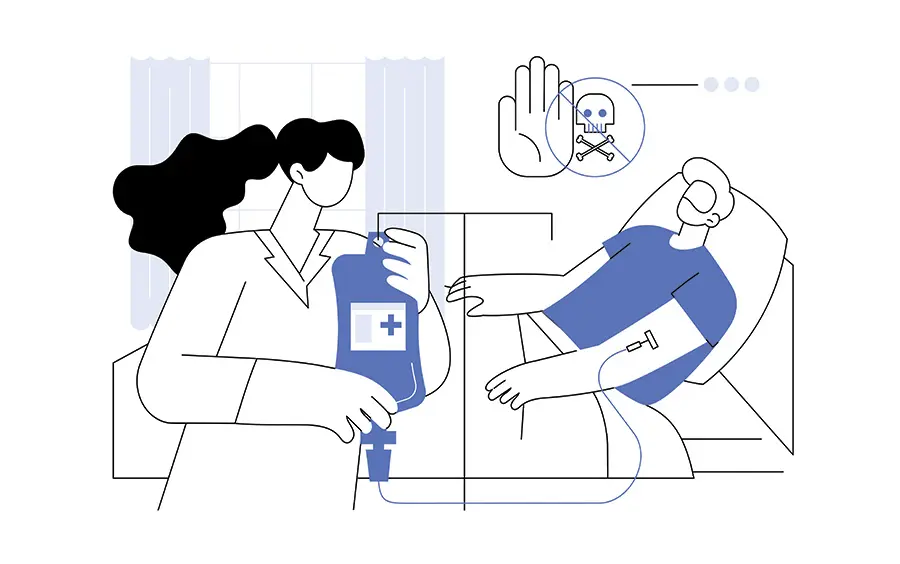Prescription drug addiction is one of the most common forms of substance abuse. As many as 6% of Americans abuse prescription drugs each year, and around 12% of prescription drug users are addicted to those drugs.
Misusing a prescription doesn’t automatically mean you have an addiction. But once you’ve developed an addiction, it can be hard to stop even if the side effects are unpleasant, harmful or worse. Understanding how your prescription drug addiction is affecting you and what you can do about it can help you get closer to the recovery path.
If you think you might have a prescription drug addiction but aren’t sure where to start, consider calling us. We can help you get the treatment you need.
Some prescription drugs are misused more commonly than others, typically due to their effects.
Opioids are among the most commonly abused prescription drugs. Opioids, which may include hydrocodone (Vicodin), oxycodone (Oxycontin), codeine, and fentanyl are often prescribed as pain relievers. However, they may also induce a pleasurable feeling or euphoria: a feeling of heightened well-being. This feeling can prove highly addictive. While taking opioids once or twice usually does not create the feeling of addiction, some people note that they feel an increased drive to use the medication after even the first dose. Many people start to take opioids more often to seek out that euphoric feeling.
Within a few weeks of use, many people will experience a physical dependence on opioids. They may experience cravings, sweats, and changes in mood or personality when they attempt to stop using the medication. Some people who have received a prescription for opioids from their care providers will continue to use them after pain has subsided due to these feelings of physical dependence.
Opioid use can lead to a number of side effects, including nausea, vomiting, dizziness, constipation, and respiratory depression. Abusing opioids can lead to addiction, drowsiness and disorientation, slurred speech, loss of consciousness, and, in some cases, death.
Benzodiazepines, also known as benzos, are anti-anxiety medications that are often used to treat seizures. Some of the most common types of benzodiazepines are alprazolam (Xanax), clonazepam (Klonopin), and diazepam (Valium). They are designed to induce a sense of calm within the brain by enhancing the effectiveness of neurotransmitters that calm the stress neurons in the brain. Doctors may also prescribe benzos to help treat seizures.
Benzodiazepines belong to a category of drugs known as Central Nervous System (CNS) depressants. These drugs work by slowing your brain down and relaxing your muscles, giving you a sense of calm. Other CNS depressants (like barbiturates and non-benzodiazepine sleep aids) can be just as addictive as benzos and have similar side effects when misused.
When used according to their prescriptions, benzos are usually very safe. Side effects generally include drowsiness and depressed feelings, though some people may experience confusion when taking them. However, benzodiazepine abuse can lead to substantial side effects, including slurred speech, impaired coordination, drowsiness, or lethargy. Some people may also suffer from disorientation. Overdose can be fatal.
Prescription stimulants are most commonly prescribed to treat ADHD. However, they can also be used to treat a wide range of other conditions, including multiple sclerosis. Stimulants increase the amount of dopamine and norepinephrine in the brain, increasing focus and concentration. People may misuse them to improve self-esteem, reduce appetite, or to enjoy the enhanced physical performance that goes along with them. Prescription stimulants include dextroamphetamine (Adderall) and methylphenidate (Ritalin, Concerta).
Stimulant use can lead to a number of potential side effects, including jitteriness, anxiety, headaches, weight loss, and insomnia. Using not as directed can lead to aggressive behavior, an increase in anxiety, risky or impulsive behaviors, restlessness, and hyperactivity. Some people may suffer from excess energy or racing thoughts. Stimulant use can also lead to elevated blood pressure and increased risk of stroke.
Prescription drug addiction can have a major impact on both physical and mental health. As explained, the effects on physical health depend on the type of drug being misused. The effects on mental health often include feeling isolated, ashamed, or depressed. Many people start taking prescription drugs as directed by their doctor but eventually develop an addiction.
A prescription drug addiction may lead to a number of possible behavioral symptoms, including:
Taking Opioids, stimulants or CNS depressants over a period of time will cause your body to develop a tolerance. That means that your body gets used to the drug being in your system and needs more of it to experience the effect you seek. Another thing that happens is that your body comes to need the drug, and so if you stop taking it, you will experience cravings and withdrawal symptoms.
Not all prescription drugs cause cravings, but this doesn’t mean they can’t be misused. In many cases, withdrawal-like symptoms still happen because your body becomes used to the medication, and has a hard time adapting when you stop taking it. This can make it hard to stop using.
Treatment for prescription drug addiction often depends on the severity of the addiction and the type of drug being used. Treatment plans are split between inpatient and outpatient addiction programs.. While traditional treatment used to be in-person only, now you also have the option of doing your entire outpatient treatment online with a provider like Eleanor Health. This type of treatment is becoming more common because it’s more flexible and accessible. Successful treatment will typically include:
In some cases, detox centers or treatment facilities may use medications to help ease withdrawal symptoms.
Treatment for prescription drug addiction is often a multifaceted process. SAMHSA’s National Hotline can help patients suffering from prescription drug addiction find the best option for treatment. It can also provide guidance for family members of people with prescription drug addiction.
If you’re looking for a treatment option in Florida, Illinois, Louisiana, Massachusetts, New Jersey, North Carolina, Ohio, or Washington, Eleanor Health is here to help. Contact us to learn more about our personalized treatment options and how we can help guide you through prescription drug addiction.
 What does it mean to be “Sober Curious”?
What does it mean to be “Sober Curious”?
 Practical Ways to Avoid Pain Meds [Podcast]
Practical Ways to Avoid Pain Meds [Podcast]
 What is Medical Detox?
What is Medical Detox?